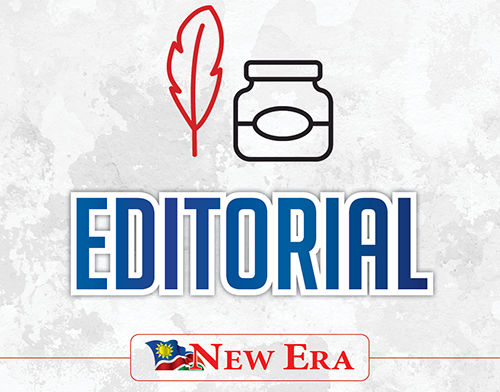NAMIBIA’S publicly- funded media houses are indispensable to the country’s democratic fabric. They provide a platform for diverse voices, hold power to account, promote civic engagement, and serve the public interest.
The budget allocation to these media houses recently sparked debate in the National Assembly, with parliamentarians questioning their autonomy despite receiving substantial subsidies from the government.
Entities like the New Era Publication Corporation (NEPC), the Namibia Press Agency (Nampa), and the Namibian Broadcasting Corporation (NBC) have faced scrutiny regarding their financial sustainability and editorial independence.
At the heart of this debate lies the importance of publicly-funded media in Namibia’s democratic landscape. These entities play a crucial role in providing citizens with diverse and reliable information, fostering transparency, and holding those in power accountable.
Namibia’s publicly-funded media are not just important, but are also necessary.
They ensure pluralism and diversity in media representation. In a country like Namibia, with its rich cultural tapestry and diverse population, publicly-funded media provide a platform for voices that might otherwise be marginalised or overlooked by commercial media outlets.
By offering a range of perspectives and covering stories that are of public interest but may not be financially viable for commercial media, these entities contribute to a more inclusive and representative media landscape.
We serve as a watchdog, holding government institutions and public officials accountable. In a democracy, the media plays a crucial role in keeping the public informed about government activities, exposing corruption, and scrutinising policies and decisions.
Many people in government and in the general public, have frowned upon some of the content, especially in the New Era, in the recent past.
We believe that by providing truthful, professional, and robust reporting, publicly-funded media help to ensure transparency and integrity in governance, ultimately strengthening democracy and the rule of law.
These are the very principles this nation was built on.
Publicly-funded media promote media literacy and civic engagement. We often prioritise educational and informative content, contributing to the public’s understanding of complex issues and fostering informed citizenship. Through programmes that discuss civic rights and responsibilities, encourage public debate and promote civic participation, we empower citizens to actively engage in democratic processes and make informed decisions.
Moreover, publicly-funded media serve as a counterbalance to commercial interests in the media industry. While commercial media may prioritise profit and audience ratings, publicly-funded media can prioritise public service and journalistic integrity without the pressure to cater to advertisers or generate revenue. This independence from commercial pressures allows them to focus on serving the public interest and producing high-quality journalism.
We provide news from near and far, even when it does not make commercial sense to do so, because Namibia doesn’t just consist of the capital city Windhoek, where most for-profit media houses solely operate. We also provide news in several languages, and keep the cover price as low as possible in order for the ordinary Namibian to afford one of the most informative newspapers in the country.
In light of these roles and responsibilities, it is essential to ensure the independence and sustainability of these media houses in Namibia. While concerns about financial management and editorial independence are legitimate, it is crucial not to undermine the critical role that these media entities play in upholding democracy, promoting transparency, and fostering civic engagement.
While some politically-connected senior civil servants may not have gotten the message about late president Hage Geingob’s insistence on the freedom of the media, the pronouncement by the new Minister of Information and Communication Technology, Emma Theofelus, that publicly-funded media is free from editorial interference, certainly puts to bed any misunderstanding about who plays the tune and that there is no issue around biting the hand that feeds these media houses.
Namibia’s press freedom ranking in Africa and the world shows that local media are robust, professional, and work in the interest of the public.
When the experienced professionals who were appointed through fair, competitive recruitment processes are left to do their work without political interference, these institutions thrive. When they are controlled from outside, they crumble, flounder and fail.
To address concerns about financial sustainability, publicly-funded media are constantly exploring alternative revenue streams or business models, such as partnerships with the private sector or philanthropic organisations, as well as commercial projects to increase their own income.
Media sustainability is a challenge the world over, brought about by increased access to the internet, the mushrooming of news organisations, and a loss of trust in traditional media, among others.
Members of parliament this week suggested a rethink of the business models of these organisations, but changes must be implemented in a way that preserves the editorial independence and public service mandate of these media entities.
While challenges exist, including the faltering self-regulation mechanism, it is essential to support and strengthen these media entities to ensure they continue to fulfil their vital role in Namibian society.


